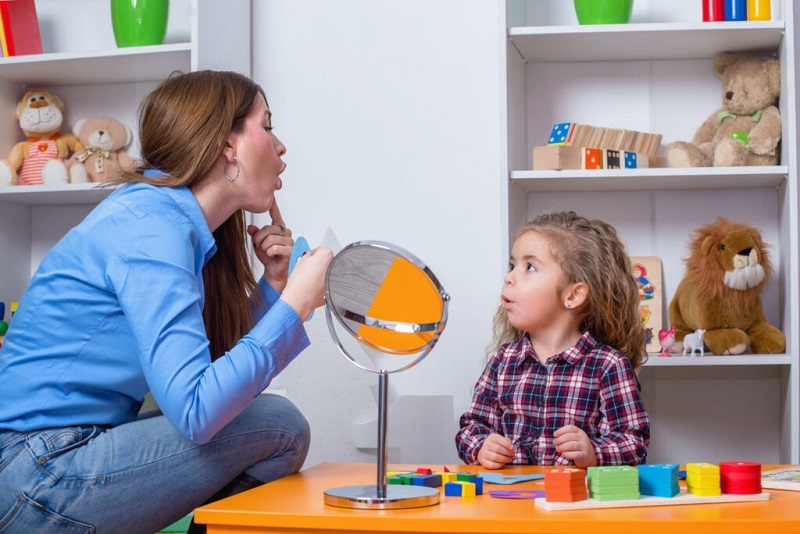
Your baby can communicate with you before they can speak a single word! The cry, smile, and responses of a baby help you understand their needs. Learn how children communicate and what to do if there are developmental issues. Delayed language development is among the most common forms of developmental delays. One in every five children will acquire linguistic abilities later than other children their age. Some children struggle with behaviour because they are frustrated by their inability to express their needs or desires.
Simple speech glitches can occur on occasion. They could get well on their own or with a little help from relatives. Spend a lot of time with your newborn or toddler, playing, reading to, and speaking with them.
It is advised that you encourage your youngster to use gestures or noises to "talk" to you. In some cases, a speech and language therapist will be required to help your kid learn to communicate and receive adequate speech treatment. Delayed language development is sometimes an indicator of a more serious problem, such as hearing loss, other developmental delays, or even autism spectrum conditions (ASD).
Early language issues may potentially suggest a learning impairment that will not be recognized until the child reaches school age. If you are concerned about your child's speech-language development, it is critical that you get him or her evaluated.
What Your Child's Physician May Do?
More information about your kid may be required before your child's doctor can address your concerns about delayed language development. The doctor may ask you questions or need you to complete a questionnaire.
- To discover more about your child's growth, interact with him or her in a variety of ways.
- Order a hearing test and recommend you for testing to a speech and language therapist. Your child's speech (expressive language) and capacity to interpret words and gestures will be assessed by the therapist (receptive language).
- Refer your kid to an early intervention program for examination.
Things You Can Do For A Toddler/Preschooler With Delayed Language Development
If you have a child who has delayed language development, then you are probably worried about how to help. Delayed language development is a very common problem that toddlers and preschoolers encounter, however, the good news is there are plenty of things you can do for your child that will improve his or her speech and communication skills. Read on to know more in detail to have an overall better understanding!
#1. Make Communication Opportunities: Parents may assist children with delayed language development by organizing their surroundings to foster conversation. As parents, we frequently desire to reduce stress for our children and learn to anticipate their wants and needs. However, we must keep in mind that occasionally we must offer incentives to encourage children to express themselves.
#2. Keep Desirable Toys Out of The Reach of Children: One simple approach to do this is to use storage bins or shelves that need your child to ask for assistance to obtain what they desire. Clear boxes with lids are an excellent method to keep toys organized while also keeping them visible. If you want your kid to be able to learn independence, overcome delayed language development and easily access toys, a nice compromise is to put a specific and highly wanted object in view but out of reach.
#3. Allow for Two Options for Snacks, Activities, Games and Toys: Giving toddlers a choice between two favored activities or toys is another technique to help them improve their speech and language abilities. Present both options and model the names for both. This helps by providing the youngsters with a model of the names of the things and allows them to communicate. They can either point to the one they prefer or attempt to speak the name.
Final Words
If your kid has delayed language development or is suspected of having delays, your doctor will most likely recommend you to an early intervention program in your region. Additional examinations may be performed by the staff to reassure you that your kid's development is normal or to inform you that your child would benefit from some sort of intervention. To get assistance via this program for delayed language development, your kid does not need to be diagnosed with a developmental issue.







No comments: